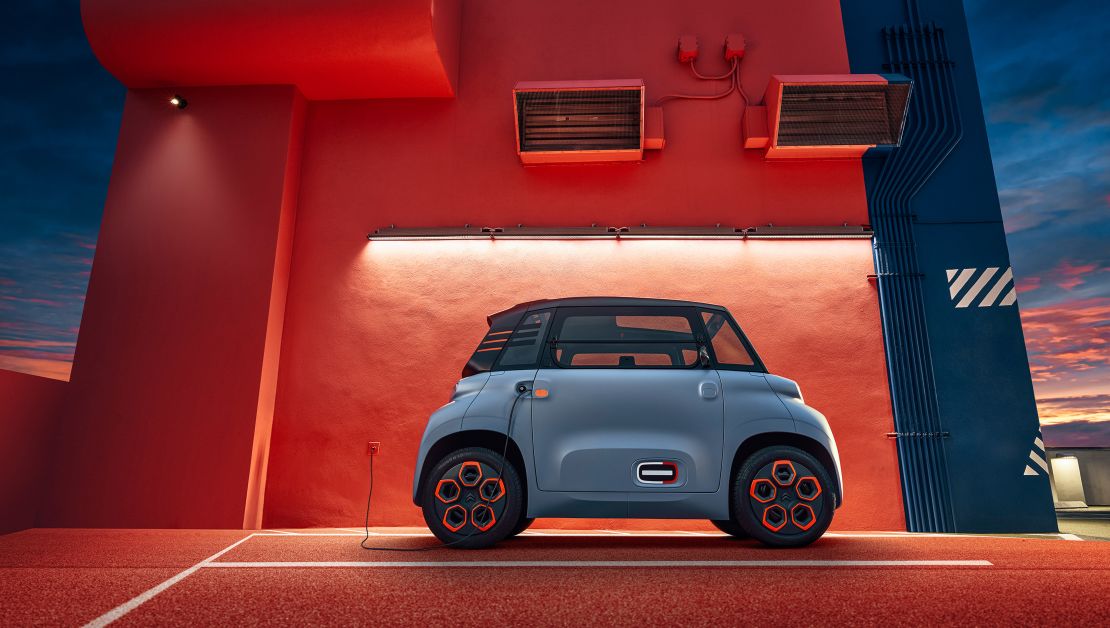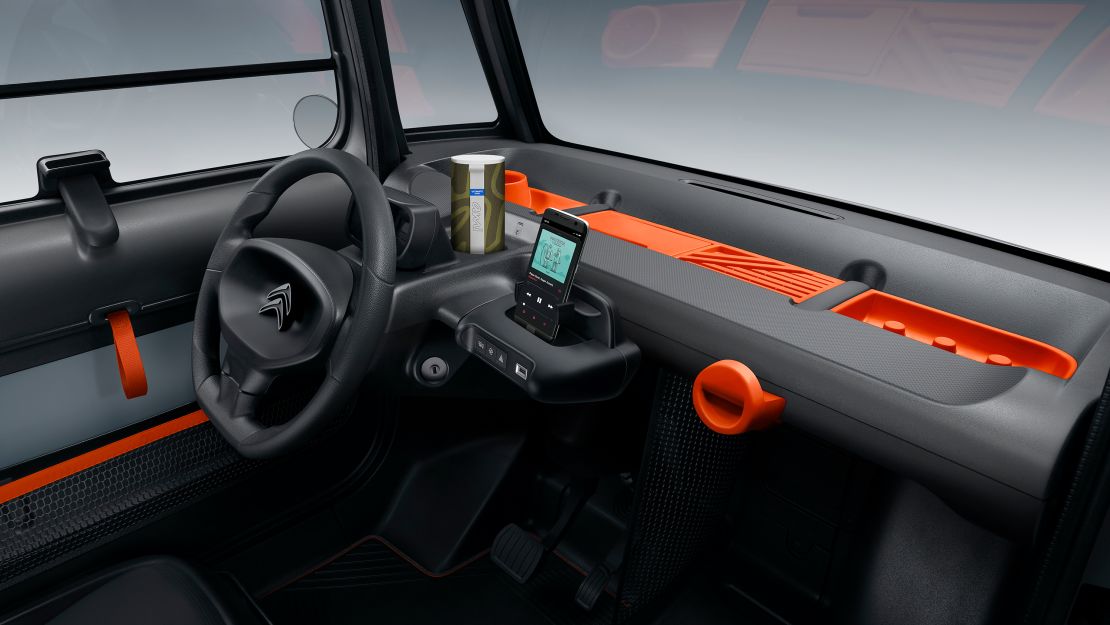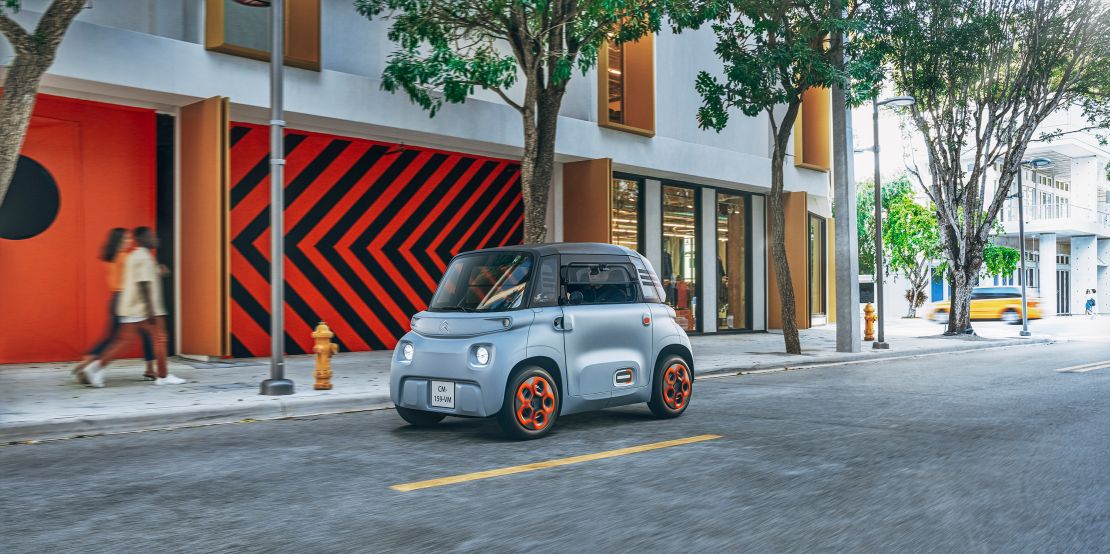French automaker Citroën has unveiled the Ami, a tiny electric car that’s designed from the outset to be as cheap as possible. The car isn’t very fast and it looks a bit like a washing machine, but it only costs €6,000, or the equivalent of about $6,600.
It would be hard to get a good used car at that price, but the two-seatAmi is barely a car. In fact, Citroën refers to it as a “non-conformist mobility object.” It has a top speed of just 45 kilometers an hour, roughly equal to 28 miles per hour. It’s powered by a 6 kilowatt, or 8 horsepower, electric motor. For that reason, though, the Ami can be driven by kids as young as 14 in France, or 16 in many other European countries, without a license.

Under the laws of these countries, the Ami qualifies as a voiture sans permis (literally “car without license”), or quadricycle, a category of small and slow vehicle that, for purposes of regulation, is treated like a four-wheeled scooter.
In some ways, the Ami is reminiscent of Citroën’s iconic 2CV. Like the earlier Ford Model T, the 2CV, produced from the late 1940s through the ’80s, was an example of innovation in pursuit of accessibility. It was a cheap car designed to be driven over rough – or nonexistent – roads in European countrysides and to be repaired quickly and easily when needed.
The new electric Ami follows a similar minimalist philosophy.

The Ami is built using as few unique parts as possible. For instance, the body parts used for the front end are exactly like those used in the back. Also, the right door is exactly like the left door. That means the driver’s side door hinge is at the front while the passenger side door hinge is at the back.
There’s only a minimal gauge cluster. An app in the driver’s smart phone, placed in a holder high in the center of the dashboard acts like the central display screen in other cars showing things like driving range and navigation. There’s also a cupholder behind the steering wheel.

Since it’s a lightweight car with a small battery intended mostly for use in cities, the Ami has a range of only about 70 kilometers, or 43 miles, per charge. On the plus side, though, it can be fully charged in only three hours using a household electrical outlet.
The car will be available for sale at Citroën dealers or buyers can order it directly on their smartphones. Citroën has made arrangements with the French electronics and appliance store chains Fnac and Darty to show the Ami in some of their stores.
Besides buying the car, shoppers will also have the option to lease it for €20, the equivalent of $22, per month. It will also be available through Free2Move, a car sharing company operated by Citroën’s parent company, PSA, at a cost of €0.26 per minute with a €9.90 monthly subscription, roughly the equivalent of $11.

Last year, Citroën celebrated its 100th anniversary at the Geneva Motor Show with the unveiling of the Ami One concept car, which was the precursor for this new production version.
Citroën executives explained at the time that the brand’s strategy for tackling the electric vehicle market was not to start with expensive cars and work their way down in price, as Tesla has done, but to do the opposite: starting with cheap electric cars and moving up from there. Along with PSA’s other brands, Citroën plans to make future car models available in electric, plug-in hybrid and pure internal combustion versions.
Citroën will begin accepting order for the Ami on March 30 in France and, a few months later, in Spain, Italy, Portugal, Belgium and Germany.
























